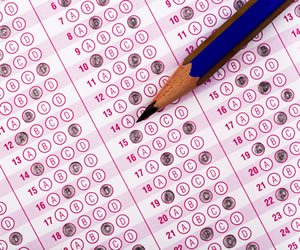The 2016 American Medical Colleges Application System (AMCAS) application season opens on Tuesday, May 5, 2015. Here are some things to know before starting your application.
1. See if you are eligible for the Fee Assistance Program now.
The AAMC’s Fee Assistance Program assists those who would otherwise be unable to afford to apply to medical school with the AMCAS application. If you are approved for fee assistance, your AMCAS fees for up to 15 medical school designations will be waived. However, in order to take advantage of this benefit, you must apply and be approved for fee assistance before you submit your AMCAS application. Fee Assistance approval can take three weeks, so start this process now.
Pre-Medical
The path to becoming a physician is long and challenging, and being a pre-medical student is hard. Learn about what you need to do to get into medical school successfully.
Medical School Reapplication: The Perspective of a Reapplicant
I am a reapplicant. Those are four words that every reapplicant shies away from and … Read more
Managing Anxiety on Test Day
Taking the MCAT can be a nerve-wracking experience. In fact, many students develop significant test … Read more
Plan to Make the Most of Your Summer—Now
Summer is a great time to get medically related experience, which can be an important … Read more
When Did You Know You Wanted to be a Doctor?
When did you know you wanted to be a doctor? the pre-med asked. Maybe it should … Read more
What If You Don’t Get In?
Unfortunately, roughly half of all applicants to American allopathic medical schools will not receive an … Read more
Top 5 Reasons Applications Get Rejected
In 2013, roughly half of all medical school applicants did not receive an acceptance letter. … Read more
The 10 Lessons Every Pre-Med Must Learn
The premed journey is different for everyone. For some, it’s really not that much of … Read more
Leveraging Pre-Med Learning Experiences for Success
Pre-medical students can – and should – take advantage of the many opportunities available to … Read more
What Can You Learn From Reflecting on Your MCAT Test Day Experience?
The MCAT is a significant hurdle that all students who wish to attend medical school must overcome. However, even after you have successfully completed the exam, you can continue to learn from your testing experience by reflecting on the test day itself.
Below are four areas of reflection that can provide you with additional insight about your future as a physician. Do not neglect to consider them!
1. How you learn best
Many students experiment with a variety of study and test-taking strategies when preparing for the MCAT. After identifying which methods are most successful, they ultimately settle on a framework that works best for them. Throughout this process, you will likely discover how you study most efficiently and most effectively, which is an invaluable tool as you move forward to medical school.
Mistakes to Avoid During Your Medical School Admissions Interview
Earning a medical school admissions interview is a significant accomplishment. Many programs adhere to rigorous academic, extracurricular, and research requirements when selecting candidates for in-person meetings. Though you should view this as an opportunity to communicate to admissions interviewers why you are a perfect candidate for the school’s incoming class, be aware that a poor showing can harm applicants. Below are several blunders to avoid during your medical school interview:
1. Failing to articulate your career plans
10 Things to Do to Prepare for Applying to Med School
Keep these things in mind this year to help you prepare for your medical school application process.
Should You Retake the MCAT? A Guide to Evaluating Your Score
Deciding to complete the MCAT for a second time is a decision that can have a significant impact on your chances of being admitted to medical school. It is vital that you correctly assess your first MCAT score to determine if retaking the MCAT is best for you. As a general rule of thumb, if your result is five or more points below your goal score, you should consider sitting for the exam again. However, there are also several factors to examine before solidifying your decision.
Want to Skip the MCAT? Check Out These Programs
Early assurance programs (EAPs) allow dedicated students to apply to to medical school early, sometimes without taking the MCAT.
Benefits and Drawbacks: Taking a Gap Year Between Undergrad and Med School
Increasingly, medical school students begin their medical school experience one or more years after graduating from college. In fact, the average age of a first-year medical student is 23 or higher at the majority of institutions. However, the decision to opt for a gap year should not be taken lightly. A gap year can serve as a significant advantage, but it also carries several potential drawbacks.
Benefits
Making the Transition to Medical School
You’ve taken the MCAT exam, applied to medical school, received an acceptance (or two!), and finally decided which school you are going to attend. Now it’s time to prepare to start medical school.
The Association of American Medical Colleges (AAMC) has a few tips to help make the process of transitioning to medical school a little smoother:
5 Steps to Preparing for Your Medical School Interviews
After obsessively checking your email every five minutes for weeks, the appearance of your first interview offer brings with it a flood of relief and excitement. All that studying, volunteering, and writing of countless secondary applications has earned you a coveted interview slot. Yet coming on the tail of such excitement is that sense of panic. What now?
5 Strategies to Make the Most of Your MCAT Studying Efforts
For an exam as important and comprehensive as the MCAT, it’s vital to do everything you can to prepare in the most effective and efficient manner possible. Below are five strategies to maximize the value of your MCAT studying efforts.
Practical Advice for the Medical School Applicant
As students begin to prepare for the next cycle of medical school application, I want to review some of the practical pieces of advice that every applicant should know. The actual process of applying to medical school is resource intensive: it costs thousands of dollars, hundreds of hours, and will strip you of many relaxing weekends that you would have otherwise enjoyed. Since you’ve made the decision to apply, here are some things that will help you make the best of it.
Remember that your MCAT score is a number. Your GPA is a number. These two things make up a major component of your application and you can’t change either of them now. You can’t change your letters of recommendation, either. The personal statement is a modifiable aspect of your application at this point, so you want to make sure to do a good job on it. But what else is there?
The answer to this lies in the details. This is what separates a good application from an excellent application. It is also what could separate a marginal application from one that gets an interview invitation. Every year, there are a few key mistakes that really put some students at a disadvantage. When schools are looking to offer acceptances, they are not only looking for good students. In addition to being smart, they are looking for people who will one day care for patients and be their colleagues. It is no surprise that those selected to become student doctors are usually meticulous, mature, intelligent, team players, and caring. Your application needs to reflect this.
Letters of Recommendation for Medical School: Everything You Need to Know
Letters of recommendation can be one of the most important parts of an application. Here we answer some of the most commonly asked questions about LORs.




















